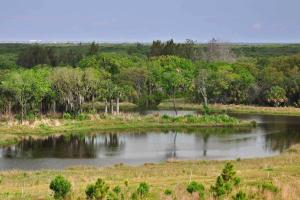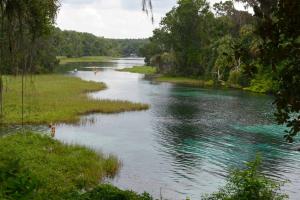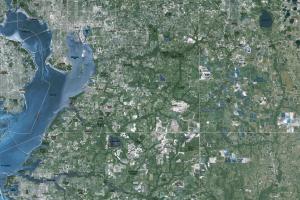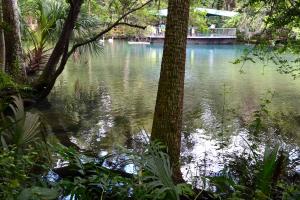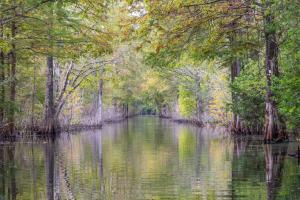Watch the Governing Board Livestream Tuesday at 9 a.m.
Search Content
Displaying results 181 - 200 of 4965
Highlights
- Weeki Wachee Springs are the headwaters of the Weeki Wachee River
- The headspring is home to Weeki Wachee Springs State Park, which features a water park and the famous underwater mermaid show
- Located in Hernando County
- First magnitude spring: 260-square-mile springshed
- Potential decrease in historic flows
- Elevated…
Your Questions Answered
March 2022
Q: Is there a rainy season and dry season in central Florida?
A: Yes, rainfall is seasonal. Our rainy season is a four-month period from June through September, with average rainfall of about 7.8 inches each month. About 60 percent of our average annual rainfall is received during that time. The higher rainfall results in rising water levels in wells, lakes, rivers and springs…
Highlights
- Largest natural lake in Hillsborough County with a surface area of greater than 800 acres
- Popular for recreational use as it is one of the few natural lakes in the area with public access
- Discharges into the Hillsborough River which is used for municipal water supply for the City of Tampa
- Nutrient loadings from the watershed have caused extreme…
Learn more about District Planning Regions on our Regional Water Supply Plan page.
In 1987 the Florida Legislature created the Surface Water Improvement and Management (SWIM) Act to protect, restore and maintain Florida's highly threatened surface water bodies. Under this act, the state's five water management districts identify a list of priority water bodies within their authority and implement plans to improve them. The District's SWIM Program The Southwest Florida Water Management District's Surface Water Improvement and Management…
Sinkholes are a common naturally occurring geologic phenomenon and one of the predominant land forms in Florida.Many of the lakes in Florida are relic sinkholes. Sinkholes can be classified as geologic hazards sometimes causing extensive damage to structures and roads resulting in costly repairs. Sinkholes can also threaten water supplies by draining unfiltered water from streams, lakes and wetlands directly into the aquifer (underground water supply). What if a…
Residents asked to conserve by following their local watering restrictions and checking their irrigation systems and timersThe Southwest Florida Water Management District (District) Governing Board voted today to declare a Phase I Water Shortage due to dry conditions throughout the region. The restrictions apply to all of Citrus, DeSoto, Hardee, Hernando, Hillsborough, Manatee, Pasco, Pinellas, Polk, Sarasota and Sumter counties; portions of…
With more than 70 springs, Crystal River/Kings Bay is the largest natural winter refuge for manatees on the Florida Gulf Coast. About the SpringsCrystal River/Kings Bay is a first-magnitude spring system that originates in Citrus County. Kings Bay is a 600-acre bay at the headwaters of the Crystal River, which is a…
Sarasota Bay SWIM Plan Update The Surface Water Improvement and Management, or SWIM, program evaluates priority water bodies, identifies challenges and implements projects to improve water quality and natural systems. The District is currently updating the SWIM plan for Sarasota Bay and the draft plan is below: Public WorkshopThe District held an in-person workshop on Wednesday, Sept. 10, 2025, from 5:30-7:00 p.m. at the Bay Preserve Carriage House. District…
Rainbow Springs is known for its outstanding water clarity and is popular for swimming and paddling. About the SpringsThe Rainbow River is a first-magnitude spring system originating in Marion County. Rainbow Springs is the headwaters of this short, freshwater river flowing nearly 6 miles from the headsprings to where it meets the Withlacoochee River. …
Your Questions AnsweredOctober 2021Record amounts of rainfall in some areas over the summer has highlighted the importance of stormwater ponds to help prevent flooding and improve water quality throughout the region. You may have seen stormwater ponds throughout neighborhoods and commercial developments in Florida but might not know about their purpose as many people often mistake stormwater ponds for natural water bodies. Southwest Florida Water Management…
Highlights
- Designated an “Estuary of National Significance” in 1990
- Florida’s largest open-water estuary at 373 square miles
- Over 2.7 million residents in the watershed
- Includes portions of Hillsborough, Manatee and Pinellas counties
- 2,200-square-mile watershed
- Update nutrient reduction goals for each bay segment using a revised seagrass-nutrient management paradigm…
Interactive Map Gallery
The District’s new map gallery contains dynamic, interactive maps created by District staff. This gallery contains general purpose and District-specific maps. VIEW MAP GALLERY »
Aerial Photography
The District provides an extensive collection of digital aerial photos (DOQQ: Digital Orthophoto Quarter Quadrangle) …
Highlights
- The lower half of the river is part of the more than 31,000-acre Chassahowitzka National Wildlife Refuge
- Designated an Outstanding Florida Water
- Located in Citrus County
- 190-square-mile springshed
- Ecological shifts in the river caused by sea level rise, coupled with the decline of spring discharge primarily due to a long-term decrease in…
To help achieve its mission, the District promotes behaviors that conserve and protect water resources. Social research can provide information that helps staff design programs that more effectively lead to sustainable behaviors.Not only can social research be used for designing more effective programs, but it can also be used for evaluating those programs. A survey conducted before an educational campaign, for instance, can set a benchmark for what people know, believe and…
Your Questions AnsweredMarch 2019Q: What are stormwater ponds and why do we need them?A: A stormwater pond is designed to collect and manage runoff from rainwater. When rainwater lands on rooftops, parking lots, streets, driveways and other hard surfaces, the rainfall that doesn’t soak into the ground (stormwater runoff) flows into your neighborhood stormwater pond through grates, pipes, shallow swales or ditches.…
Wetlands »
Your Questions Answered
November 2019
We often receive questions from the public about wetlands and why they are important. Tasha Dailey is certified as a Professional Wetland Scientist by the Society of Wetland Scientists and explains why wetlands are a critical part of our natural environment.
Q: What is a wetland?
A: A wetland is a distinct ecosystem that is flooded by water, either permanently or seasonally, where…
Homosassa Springs has been a tourist attraction since the early 1900s and is now located within a state park that features a fishbowl observatory and manatee rehabilitation. About the SpringsThe Homosassa River is a first-magnitude spring system originating in western Citrus County. Homosassa Springs is at the headwaters of this short, slow moving tidal river, which flows 8 miles from the headsprings to where it meets the Gulf of America.Many springs make up the…
Florida law requires establishment of minimum flows and levels of water bodies to prevent significant harm associated with water withdrawals.Program overviewFlorida law (Chapter 373.042, Florida Statutes) requires the state water management…

